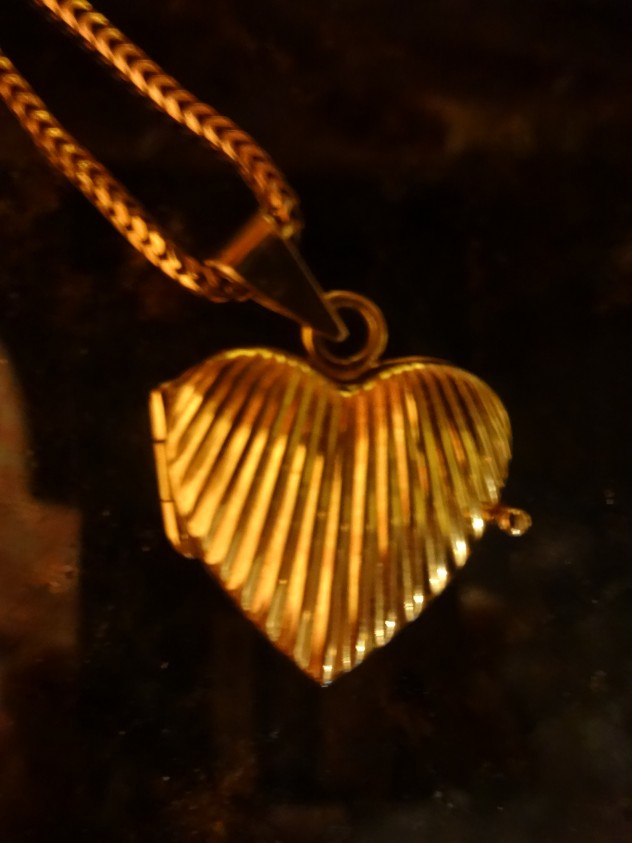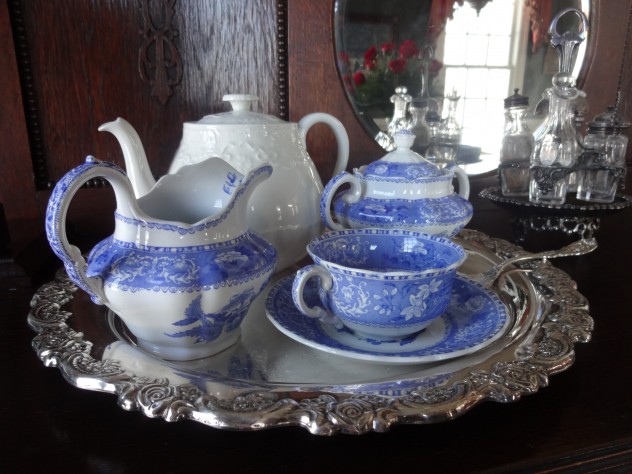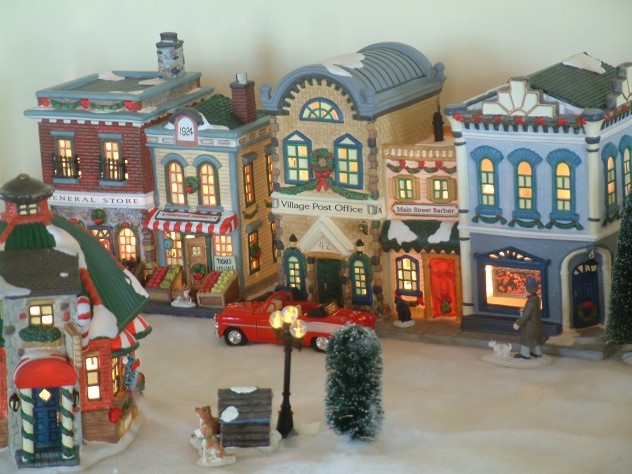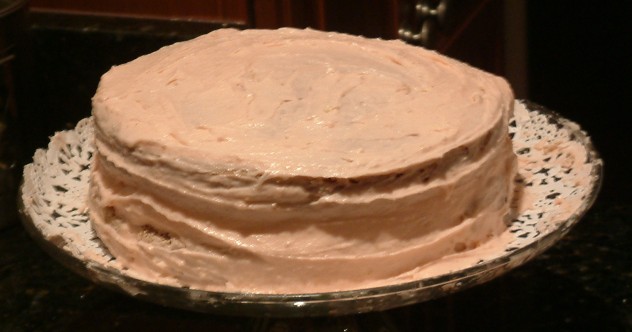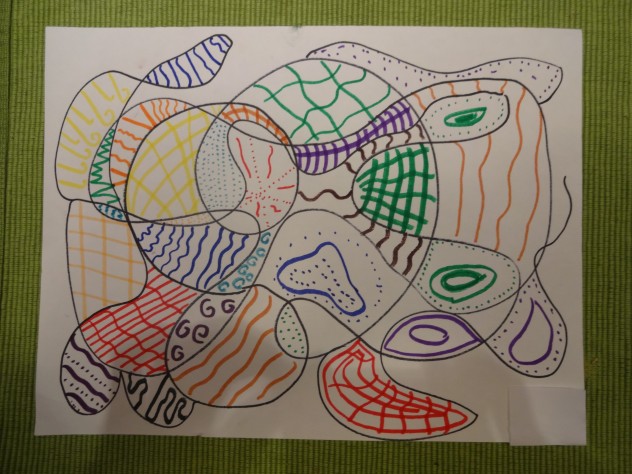 Edith continues to stay by her dear dying Luna’s side, day after day, week after week, month after month. Every time the doctors come to pay a visit, they note that Luna is quite a fighter, but that only three to four weeks remain (still). The bakery is neglected, so Edith and Luna are earning no income. The bills are piling-up, and despite cutting coupons, buying generic brand goods, and ordering Luna’s prescription medicines from Canada, Edith is barely able to put food on the table, let alone afford the lifestyle to which Marigold has become accustom (a lifestyle that is required to find a suitable suitor).
Edith continues to stay by her dear dying Luna’s side, day after day, week after week, month after month. Every time the doctors come to pay a visit, they note that Luna is quite a fighter, but that only three to four weeks remain (still). The bakery is neglected, so Edith and Luna are earning no income. The bills are piling-up, and despite cutting coupons, buying generic brand goods, and ordering Luna’s prescription medicines from Canada, Edith is barely able to put food on the table, let alone afford the lifestyle to which Marigold has become accustom (a lifestyle that is required to find a suitable suitor).
Edith’s resentment toward Luna is mounting. She knows that she owes her life to Luna – forever in debt for stealing Luna’s husband.
On the other hand, was it Edith’s fault that Luna was falsely institutionalized? No.
Was it Edith’s fault that Luna’s husband fell in love with Edith? No!
Now Edith feels like Luna has ruined her life long enough! Day in and day out, Edith is torn between guilt, repentance, resentment, remorse, and mostly: self-pity.
In the midst of the darkness there are beacons of light. Edith, Luna, and Marigold are often visited by Rascal and other friends from the soup kitchen. Edith taught many of the soup kitchen patrons to read, so they enjoy taking turns reading to Luna. The subject matter of the reading materials varies.
Prince Kurigan also visits frequently for a game of cards or backgammon, but most often, when he visits he brings his canvasses and paints in a delightful array of colors. He paints what he calls “abstract” art. To Edith, they look like blocks, squiggles, and splatters that any child could create, but Prince Kurigan explains that they are mostly portraits of people – Edith, Luna, and Marigold (and other family members, he whispers so only Edith can hear – for Marigold knows Kurigan only as a friendly vagrant from the soup kitchen, not as her great-grandfather). Just for a fleeting moment, Edith thinks she recognizes a glimmer of her grandmother, the Dowager Countess, on a canvas, but Prince Kurigan jovially explains that it is a picture of a still-life of a bowl of fruit.
When Prince Kurigan is not selling his paintings on the streets, he stores them in Edith’s small apartment. When a painting sells, he generously shares the proceeds with Edith. He is becoming a popular abstract portrait artist, selling at least one piece a week and at a price far more than Edith could comprehend. With the proceeds, she is able to make ends meet and have a little extra to spare for precious Marigold.
One day Edith sees Kurigan on the street corner, trying to sell his paintings. On that same corner, she also sees her cousin Rose with her friends, encouraging them to purchase a very trendy piece of the Prince’s work. Edith hides behind some crates as she hears Rose exclaim with delight, “The artist is a Russian Prince!”
But the now-humble Prince Kurigan pleads, “That is no longer who I am. I am the artist formerly known as Prince. Now, I am simply Kurigan.”
Marigold avoids telling her mother that she met her Aunt Rosamund, for with Luna’s impending death, Rosamund and Marigold agree that they should wait to re-introduce Aunt Rosamund into Edith’s life at a less emotional time. However, as Luna lingers on and on and on, they can delay no longer. The day has arrived when Marigold brings Rosamund to visit Edith. Because Rosamund is a refined and culturally astute lady, when she enters Edith’s apartment, she is astounded by the beauty and sheer number of abstract portraits of her family members. She recognizes them immediately. There is Robert. There is Sybbie. There is dear Isis. And so many of her mother, the Dowager Countess. Finally, her eyes find a canvas bearing two red squiggly lines, a royal-blue asymmetrical polygon, and a splattering of orange and purple paint: a canvas that portrays her, Rosamund– it is unmistakable – a portrait of her as a young child. It is so lifelike in an abstract way; it could have been a selfie.
Rosamund is mesmerized. It takes her a minute or two to remember the reason she came. She gently embraces Edith. Edith puts on a good act – assuring her Aunt Rosamund that she is fine and that things are going well. Edith pleads with Aunt Rosamund to keep the secret – not to tell Edith’s family that she has found her. However, Rosamund insists that Edith’s mother and father must be told that Edith has been found and that she is safe and happy. But Edith is desperate to keep her family from finding out about Marigold, and that Edith was an adulteress. For Edith rightly assumes that her sister Mary would delight in that news. Oh, the gloating!!! It would simply be unbearable! Edith was crafting a plan to stop Rosamund from telling her family when Lady Luck looks her way: Rosamund returns her attention to the artwork and sees an easel and paint box leaning in the corner of the room. Rosamund asks Edith if she has painted the extraordinary portraits. Edith explains that the artist is Prince Kurigan.
Utterly astonished, Rosamund asks “Prince Kurigan? Does he paint here? Does he know who you are?”
Edith explains that Prince Kurigan knows everything and has agreed to keep her secret. Edith does not dare betray Kurigan’s trust by disclosing the fact that Robert and Rosamund do not share the same father.
Edith can tell that Rosamund’s clever brain is busy at work. “Edith,” Rosamund tests her theory, “Mother and Prince Kurigan are quite close. Do you think he told her?”
That had never occurred to Edith; however, she recalls the Prince saying that he and her Grandmama kept no secrets. “I suppose he did. Wait! That means: if she knows and has refrained from telling the family, then you too, Rosamund, have no obligation to tell my family!”
Rosamund shared Edith’s logic. However, before she can agree to keep Edith’s secret hidden away, she must confirm that her mother does, in fact, know and is keeping the secret. Edith reluctantly agrees, knowing that is the best she can hope for. Rosamund leaves the following morning to visit her mother at Downton Abbey and to find out just how much the Dowager Countess knows about Edith and Marigold.
